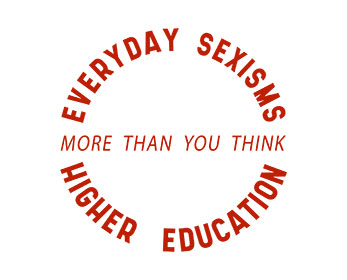Background
Despite awareness of the importance of gender equity, Australia ranks 48th in the world in terms of female political empowerment, with 1 in 2 women experiencing sexual harassment during their lifetime. Professionally, just one-quarter of ASX-listed company board members are women and retiring women’s average superannuation balances are just over half of those of men. Australian universities represent an important microcosm of these broader social outcomes, where just 33% of the professoriate are women and where female academics report the highest levels of bullying and harassment, while also being the least likely to report this.
Examining the everyday gender-based practices of Australian academics will provide important information on the factors impacting women’s career trajectories and associated workplace cultures. The inclusion of individuals with intersecting minority identity characteristics from varying university sectors will provide significantly more nuanced understandings of this phenomenon, with important benefits which extend to broader Australian society.
The transdisciplinary and place-based research the CPPP conducts is about healing Country by reconnecting people, place, and planet. One of the things that gets in the way of these connections is discrimination. The work Centre for People, Place and Planet Director, Mindy Blaise has been leading in the Australian Research Council Discovery Grant (with Associate Professor Emily Gray, Monash University and Associate Professor Jacqueline Ullman, Western Sydney University) 'Understanding and addressing everyday sexisms in Australian Universities' contributes to the mission of the CPPP because it focuses on understanding and addressing gender-based harassment and discrimination in collaborative and creative ways so that people, place, and planet can connect.
The Research Project
This project aims to understand how everyday sexisms contribute to structural gender-based discrimination across individual academics’ experiences, the disciplines and Australian universities. We will meet this aim by deploying a multi-phased and multi-method approach to data collection in order to achieve the following objectives:
1. Gather and examine evidence on how everyday sexisms contribute to gender-based discrimination across the individual, discipline and university levels;
2. Take a situated, intersectional, and creative approach to the definition and description of everyday sexisms to investigate and better articulate different experiences of individuals with diverse identities;
3. Devise practical strategies for recognising, addressing and challenging everyday sexisms in the workplace;
4. Develop a suite of situated practices that will enable universities to include everyday sexisms within their current programs, strategies, and policies related to gender equity; and
5. Create a research-informed 'Everyday Sexisms Micro-Credential'.
Related Projects
- The creative methodologies take inspiration from #FEAS Feminist Educators Against Sexism
- Gray, E., Ullman, J., Pollitt, J., & Blaise, M. (2022) “I’m broken but I’m alive”: Gender, Covid-19, and higher education in Australia. Higher Education Research & Development, 1-15. Pilot project
- Pollitt, J., Blaise, M., Gray, E., Ullman, J., Fishwick, E., (2023). Performing feminist research: Creative tactics for communicating COVID-19, gender and higher education research. Gender and Education, 1-18. Paper based on the findings from the pilot study and the creative methods used to translate this research.
For more information, please contact:
Professor Mindy Blaise, School of Education, Centre for People, Place, and Planet
Funding Agencies
Australian Research Council (Discovery Project: DP210101258),
Edith Cowan University
RMIT
Western Sydney University
The Research Team
Professor Mindy Blaise, Chief Investigator
Associate Professor Emily Gray, Chief Investigator
Associate Professor Jacqueline Ullman, Chief Investigator
Dr Emma Fishwick, PhD Student
Project Duration
2021 - 2024

